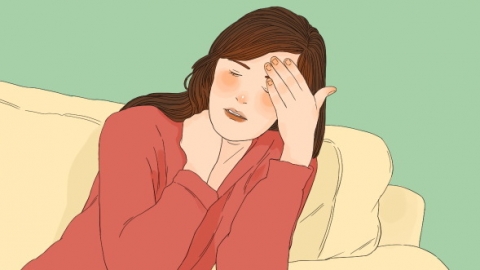Why do I feel irritable and easily angered when the weather is hot?
Under normal circumstances, irritability and anger caused by hot weather may be due to factors such as thermoregulatory stress, neurotransmitter imbalances, summer affective disorder, hyperthyroidism, or anxiety disorder. It is recommended to seek medical attention promptly, identify the underlying cause, and receive symptomatic treatment under a doctor's guidance. The specific analysis is as follows:

1. Thermoregulatory Stress: In high temperatures, the body consumes significant energy to dissipate heat, increasing sympathetic nervous system excitability and triggering mood fluctuations. Move to a cool place promptly, apply cool wet towels to the forehead for cooling, and drink more lightly salted water to replenish electrolytes.
2. Neurotransmitter Imbalance: High temperatures affect serotonin secretion; reduced levels of this mood-regulating neurotransmitter can lead to irritability. Maintain regular sleep patterns and avoid staying up late. Consume more foods rich in serotonin precursors, such as cherries and bananas, to stabilize nerve function.
3. Summer Affective Disorder: Related to high temperatures and changes in daylight, this condition manifests as irritability and heightened emotional sensitivity during summer. Patients may take medications such as sertraline hydrochloride tablets, fluoxetine hydrochloride capsules, or fluvoxamine maleate tablets as prescribed, along with psychological counseling.
4. Hyperthyroidism: Excess thyroid hormones accelerate metabolism, placing the body in a state of overexcitement, which can be triggered or worsened by high temperatures, leading to irritability. Follow medical advice to use medications such as methimazole tablets, propylthiouracil tablets, or propranolol hydrochloride tablets to suppress hormone secretion.
5. Anxiety Disorder: Hot environments can amplify feelings of anxiety, exacerbating symptoms such as irritability and restlessness. Medications such as paroxetine hydrochloride tablets, lorazepam tablets, or venlafaxine hydrochloride sustained-release tablets may be used as directed. In severe cases, transcranial magnetic stimulation (TMS) therapy may be considered, using magnetic fields to regulate brain neural function.
In daily life, avoid going outdoors during peak afternoon heat. Keep indoor areas well-ventilated and use fans or air conditioning for cooling, but avoid setting temperatures too low. Maintain a light and easily digestible diet, reduce intake of spicy and stimulating foods, and cultivate a calm and balanced mindset.




